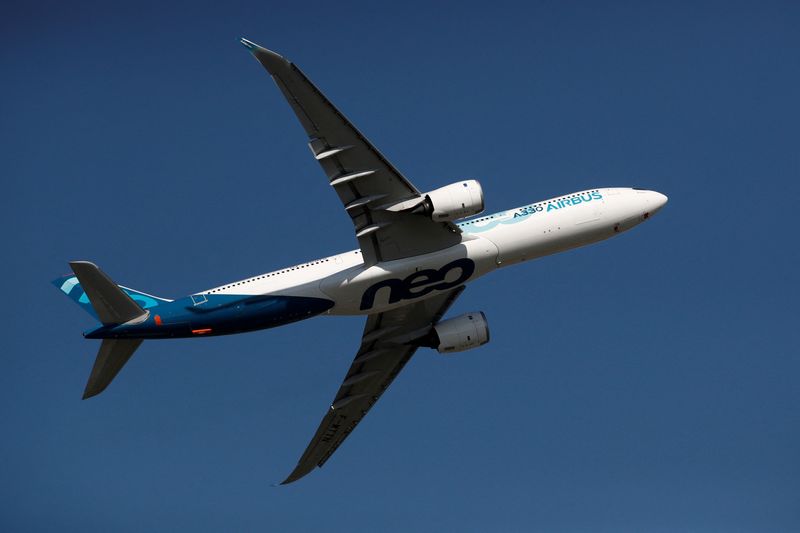Saudi Flyadeal looks at adding Airbus or Boeing wide-body jets
2024.06.03 11:36
By Lisa Barrington and Tim Hepher
DUBAI (Reuters) – Saudi budget airline flyadeal is studying a possible order for between 10 and 20 wide-body jets to carry more passengers, and could make a decision by the end of the year.
The low-cost subsidiary of state carrier Saudia is in the early stages of comparing the Boeing (NYSE:) 787 and Airbus A330neo, CEO Steven Greenway told Reuters. It has not yet started a formal competition between planemakers, he added.
Such a deal would be worth up to around $5 billion at list prices, though airlines typically win sharp discounts.
Saudia Group, owner of Saudia, and flyadeal placed an order for a total of 105 Airbus narrow-body aircraft last month.
Among larger aircraft, Jeddah-based Saudia already operates the Boeing 787 and the A330ceo, an earlier version of the A330neo which is an upgrade based on new engines.
“We have on our back doorstep an operator, in our owner, that has intimate knowledge of both aircraft, which is very helpful to us,” Greenway said in an interview.
The larger A350, the latest Airbus wide-body jet which competes with both the Boeing 787 and 777, is less likely to be a contender because it was built for longer ranges than flyadeal needs, Greenway said.
“The A350s are a great airplane, but they’re over-engineered for what we need,” he told Reuters on the sidelines of the IATA airline association’s annual meeting in Dubai.
Greenway, a former senior executive at Singapore Airlines (OTC:) subsidiary Scoot, which operates Boeing 787s, was appointed CEO of flyadeal in January.
Saudi Arabia’s aviation sector is expanding as the kingdom invests billions of dollars in its Vision 2030 plan to diversify its economy away from fossil fuels and boost its private sector.
“We have mapped out a long term plan (in which) we could potentially have a fleet of 10, 15, 20 – I would say 10 minimum in the next three, four or five years,” Greenway said, referring to the airline’s study of wide-body aircraft.
Such planes – which designers say can seat up to around 400 passengers in all-economy configurations – could be attractive for the number of seats amid slot constraints in places like Dubai, though they could also open new routes, Greenway said.
“If we can’t get any more slots … then the only choice you’ve got beyond the (Airbus) A320 is getting a wide-body to operate the service,” Greenway said.

The Airbus narrow-body jets purchased by flyadeal in its recent order can seat up to 240 people.
Greenway dismissed concerns that budget airlines have a poor track record of operating large aircraft, saying the Atlantic market had unique competitive pressures while large planes were more routinely used to fly relatively short distances in Asia.








